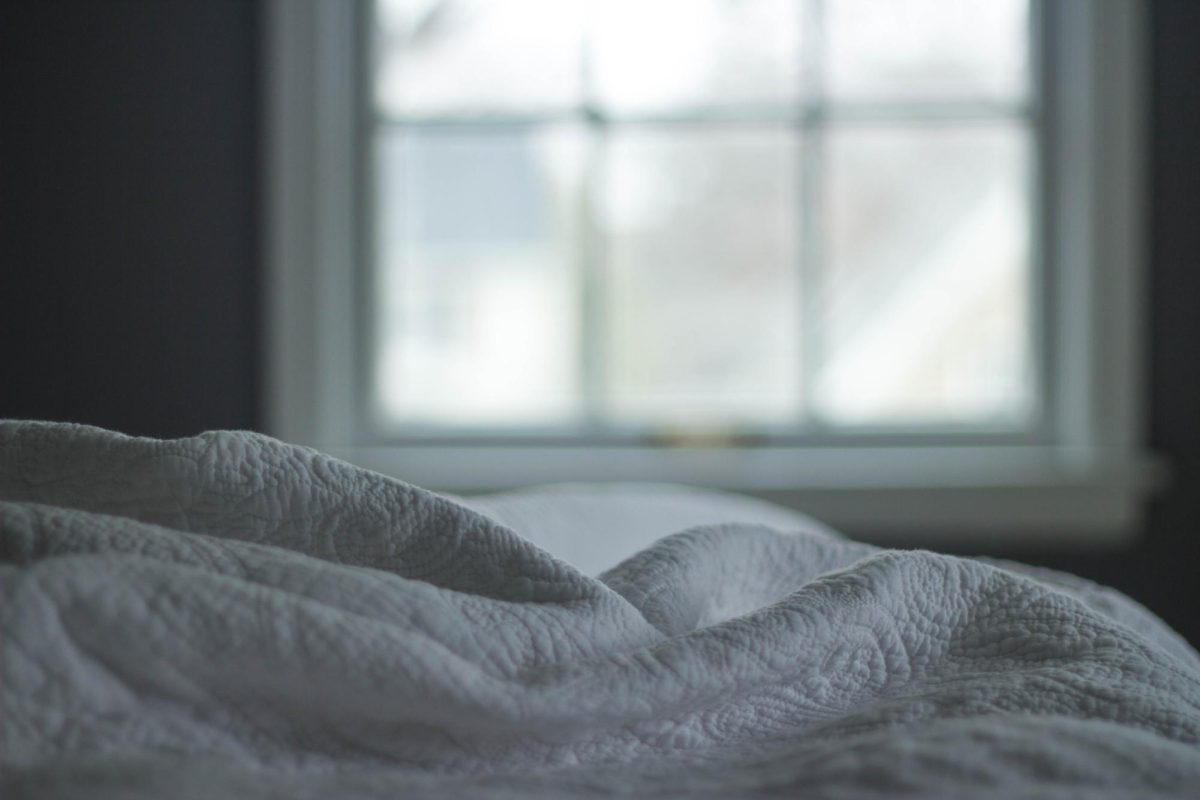Sleep is as necessary for health as food, water, and company. Despite this reality, sleep isn’t treated with due importance. This study from the National Institute of Health points to a strong connection between poor sleep and several awful chronic health issues. These issues include and unfortunately aren’t limited to heart and kidney disease, high blood pressure, obesity, diabetes, and even depression. These aren’t just drowsiness or trouble concentrating; these are extremely troublesome conditions that can even prove deadly. (Very) long story short, for the sake of your mental and physical health quality sleep is essential.
On the topic of poor sleep among Gen Z it’s commonly noted that if we’d just “put down our phones” or “just go and read a book” we’d sleep better. This does just sound like Boomers yapping about technology, but there might be something to it. For the sake of research The Talon interviewed a sample size of 50 Osbourn students just to see the answers to a few important questions. Here’s how it wound up:
When asked if they’d say that they get a reasonably healthy amount of sleep on a consistent, nightly basis 30% of students answered yes, leaving 70% with a resounding no.
Of those who answered yes, roughly 47% claimed to have used their phone or another electronic device immediately before going to bed. Of those who answered no, about 69% claimed to have used their phone or another electronic electronic device immediately before going to bed.
Keep in mind: this is hardly a peer-reviewed scientific study, but it does paint an unfortunate picture of the state of sleep amongst Osbourn students and the greater American youth.
These are some sad numbers, but they by no means spell disaster. As a matter of fact, this issue is nothing but a few habit changes away from disappearing. This peer-reviewed article from Healthline lists off some habitual remedies for poor or hindered sleep. These changes, while simple, will require a certain amount of planning and discipline, but avoiding the negative health effects of sleep deprivation are well worth putting screens down for an hour.
As for Osbourn, there are a few simple things that can be done for a proper reintegration of quality sleep. Firstly, having a sleep routine and going to bed at a consistent time every night is foundational for better sleep habits. It helps to establish an internal “body clock” that will aid mental function during the day.
Secondly, exercise. Exercise is not only used in clinical trials to help people get better sleep, it’s also used to increase vitality in sedentary adults and even fight depression in struggling teens. In an article from Johns Hopkins Medicine, researchers at Johns Hopkins reviewed the institute’s sleep studies and found strong evidence to suggest the positive impact that regular exercise has on both mental health and sleep quality.
Lastly, put the screens down. In an article from the Cleveland Clinic, sleep medicine expert Dr. Michelle Drerup PsyD, DBSM tells the Clinic: “It’s really about what you’re doing on those devices. Anything that is activating our brain as we’re trying to wind down can keep us going.” Turn it off an hour before bed and you can expect better quality sleep.
These changes are simple and beneficial, but simple and easy aren’t synonyms. Changes like intentionally getting more exercise and giving up electronics for a while before bed will require self control and discipline, but it’s important to understand just how necessary quality sleep is for daily life. Take these habits into account, implement them into your routine, and sleep will simply be easier.
Good luck.














Aleen Tawer • Feb 21, 2024 at 10:56 am
thx jack
Jack B. • Feb 27, 2024 at 10:28 am
🙂
Allison Avila • Jan 18, 2024 at 11:31 am
My sleep is horrible and part of the reason isn’t even my fault. My whole family stays awake till 1 am on school nights. But I’ve given up the idea of trying to fix my sleep schedule.
Jack Bailey • Jan 23, 2024 at 11:44 am
Don’t give up. Nothing worth getting comes easily.